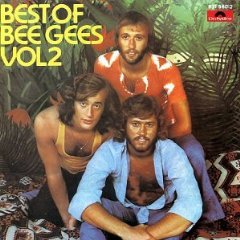This article needs additional citations for verification .(March 2013) |
| Best of Bee Gees Volume 2 | ||||
|---|---|---|---|---|
 | ||||
| Compilation album by Bee Gees | ||||
| Released | August 1973 | |||
| Recorded | July 25, 1967–April 12, 1972 in London and New York City | |||
| Genre | Pop | |||
| Length | 52:17 | |||
| Label | Polydor Rhino 2008 reissue | |||
| Producer | Bee Gees, Robert Stigwood | |||
| Bee Gees chronology | ||||
| ||||
| Review scores | |
|---|---|
| Source | Rating |
| AllMusic | |
| Christgau's Record Guide | C+ [2] |
| The Rolling Stone Album Guide | |
Best of Bee Gees Vol. 2 is a compilation album of hits by the Bee Gees released in 1973. The album, briefly revived on CD in the late 1980s, went out of print, but was reissued by Rhino in November 2008.
Contents
Whereas the original Best of Bee Gees had focused on songs that had been major hits for the group in America and/or the United Kingdom up to 1969, this follow-up collection featured 1969–72 chart hits and also album tracks from their late-1960s albums Horizontal , Idea and Odessa , plus "Morning of My Life" – which featured on the soundtrack of the 1971 film Melody – and Robin Gibb's big 1969 non-US solo hit Saved by the Bell. The album featured nothing from Bee Gees' 1st , which had already been represented by five tracks on the earlier compilation.
The front cover featured a group photograph from the same photoshoot that had been sourced for the front cover of their Life in a Tin Can album released earlier in 1973, despite the fact that nothing from that album appeared on this compilation.